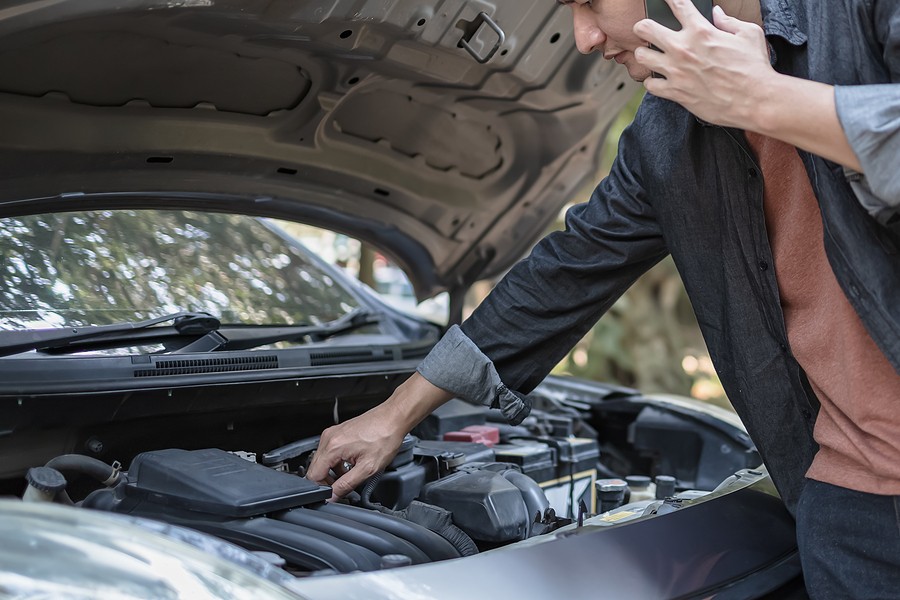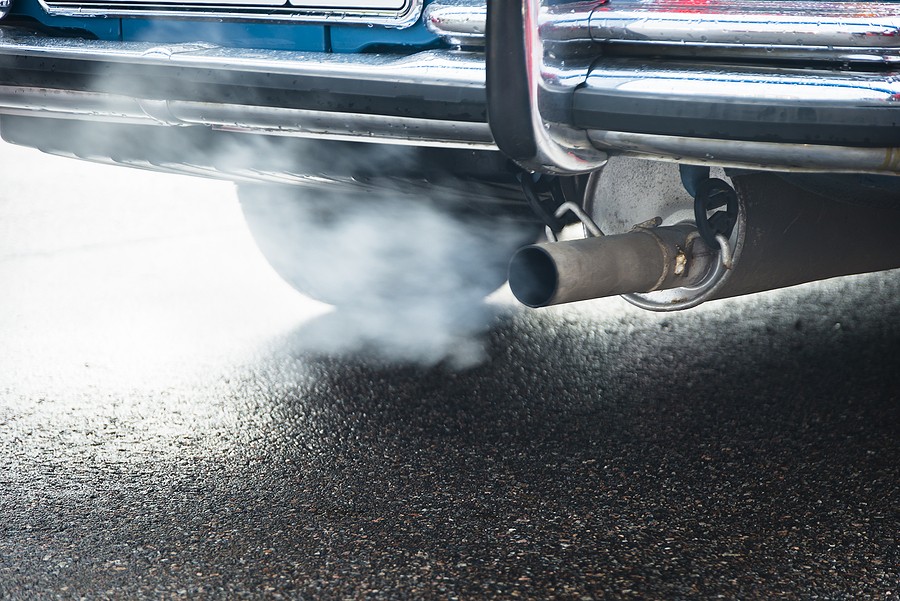If you're wondering “how to know if your car's exhaust system is failing,” below are the common symptoms:
- Increased engine noise
- Reduced fuel efficiency
- Unpleasant orders
- Vibration and rattling noises
- Decreased engine performance
- Hissing or popping noises
- Excessive exhaust smoke
- Check engine light
- Visible rust or corrosion
- Dragging or scraping sounds
The exhaust system is one of the core components in your vehicle that plays a significant role in how your vehicle performs. It provides your vehicle with the necessary support to ensure a smooth ride and prevents harmful gases from being released into the environment.
Over time of use, this system might fail, and as it fails, you'll start noticing some symptoms indicating minor problems. However, ignoring these problems for longer leads to further complications and complete failure.
This article summarizes the ten common symptoms indicating your exhaust system is failing. You must address these symptoms immediately and have your mechanic replace the faulty component before dealing with further complications.
How to Know If Your Car's Exhaust System Is Failing?
When you're exhaust system fails, it'll show you immediate symptoms indicating that there is a problem happening. Detecting the problems as soon as possible helps you prevent dealing with costly repairs that might end up with a complete vehicle failure.
The following list summarizes the ten sentences with the fact that your exhaust system is failing. Addressing these problems is probably essential because otherwise, the entire system might fail, and you might get to the point where you have to sell the car:
1. Increased engine noise
In general, as your exhaust system fails, you'll start hearing sudden noises from the engine. Depending on the severity of the problem, these noises become louder and louder, and sometimes, your vehicle might be unable to handle them.
2. Reduced fuel efficiency
When the exhaust is not operating properly, you'll see an immediate impact on fuel efficiency. That's why you'll find yourself at the gas station more often than before, and when this happens, you have to check on the exhaust because something might be happening internally.

3. Unpleasant orders
One of the common symptoms indicating A failing system is when you notice some unpleasant odors coming from the exhaust side. Typically, this indicates that the gases are not cleaned up properly, and there's something related to the environment that shouldn't.
This smell will generally be more like a sulfuric acid, or sometimes people describe it as a rotten egg. That's why automotive experts typically recommend that you never ignore any smell from your car that does not look and smell normal.
4. Vibration and rattling noises
A failure in the glass system can easily lead to strange rattling and vibration noises from the different components around the system. These noises will typically be clear as you accelerate or suddenly stop your vehicle.
As with all of them, automotive experts typically never recommend ignoring any noises from your car. These noises are typically ways for your car to grab your attention to internal problems. Therefore, you should take them seriously and consult your mechanic immediately.

5. Decreased engine performance
If the engine is not connected to the proper exhaust system, don't be surprised to deal with decreased engine performance. As we indicated earlier, this will translate into consuming more fuel than before.
Remember that a reduction in engine performance is always linked to issues with the exhaust system but can sometimes be related to other problems. Therefore, you cannot immediately assume that you have to deal with major repairs in your exhaust system because you must dig deeper and find the root culprit.
6. Hissing or popping noises
Many people indicated that whenever they have a problem with their exhaust system, they deal with weird popping and hissing noises from where the exhaust is sitting. The problem with these noises is that they increase as you accelerate, indicating that the problem is evolving.

7. Excessive exhaust smoke
When the exhaust system is not operating properly, it will allow harmful gases to leave and be released into the environment. That is not a good thing; you can monitor and look for that by checking the current exhaust color.
Usually, you shouldn't notice visible exhaust coming from the tailpipe because the manufacturers are now working towards making this as less visible and as less as possible. However, if you notice excessive exhaust smoke, check on the different components because something might be going on internally.
8. Check engine light
If you leave the exhaust system problems for longer, you'll notice a check engine light illuminating. This might indicate an internal issue that probably impacted the engine at some point in time.
Note that the check engine lights are a general warning, which can be linked to another problem. That's why whenever you deal with the check engine light, you should not ignore it but not assume anything until you look deeper at the error codes and the root culprit causing the problem.

9. Visible rust or corrosion
Even if you're not dealing with any response from your vehicle about problems with the exhaust system, you should start being more proactive about the problem by performing a visual inspection to see what's going on in the vehicle.
For example, if you suspect something is wrong with the exhaust system, perform a visual inspection of the different components and see if you can monitor for any signs of rust or corrosion within the components. If that's the case, you should have your mechanic inspect and see if something can be fixed.
10. Dragging or scraping sounds
Finally, mutual problems in the class system might be associated with dragging or scraping noises from the exhaust. That measure shouldn't be ignored or taken lightly because it can lead to further complications that might get to the point where your vehicle breaks down completely.

Solutions for exhaust system issues
If you confirm that your exhaust system suffers from any problems, you have multiple options depending on the severity of the problem. Let's take a look below:
1. Seek professional inspection
As you notice from the symptoms we indicated earlier, many are linked to general errors and can be associated with different problems. Therefore, the first step when suspecting you're dealing with exhaustion problems is to seek professional inspection.
Your mechanic should have the right tools and experience to identify the root culprits causing the problem. For example, they might use an OBD scanner to translate the error code associated with the engine light.
2. Replace the damaged components
Your mechanic should also be able to tell you what's going on internally and what is causing the issue. It would be best if you didn't wait on the problem because the more you wait on the faulty components, the more they evolve and impact other components.
However, you must be careful about how much you'll spend fixing this car. For example, if replacing these components might cost you up to 75% or more of your vehicle value, it might not be worth the repair, and you should consider selling your vehicle instead.
3. Keep up with regular maintenance
One of the best advice that automotive experts always like to bring up in these situations is to keep up with regular maintenance. Your vehicle should last a certain amount of time and not deal with premature damages.
That's why keeping up with regular maintenance helps you avoid unnecessary problems that are expected to occur before the right time. For example, you should review the vehicle owner's manual and see what you need to keep up with to ensure your exhaust system is functioning properly.
4. Ventilate your garage frequently
Experts also recommend ventilating your garage, especially if the vehicle starts releasing harmful gases, because that can impact your health and the health of people driving with you.
5. Use quality parts
Finally, consider replacing your exhaust system with quality parts because these parts are expected to last longer and not fail prematurely. You want to make sure that you're investing in the right car. If your car suffers some additional problems, it might be worth purchasing a better car than spending on quality parts for this vehicle.

How to Know If Your Car's Exhaust System Is Failing? Final Thoughts
Maintaining your exhaust system is a critical task you must keep up with as a car owner. Failing to do so leads to further complications that might affect your entire vehicle and safety.
This article summarized the ten common symptoms indicating A failing Excel system. Whenever you deal with those, you must talk to your mechanic and have him inspect the failing components and replace them if necessary.
For similar articles, visit our blog by clicking here.



